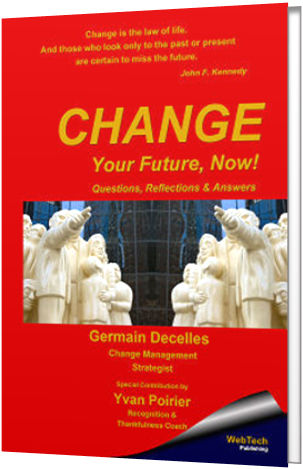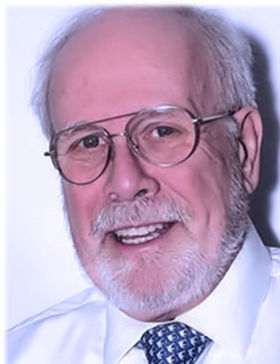|
Article published on LinkedIn.com:
Mars 27 2024
13_Good_Citizen_220324.pdf

GOOD
CITIZEN
We all want to be known as good citizens. Being a good
citizen is all up to you.
What do you do best? Help out. You can help out in
almost any way! Do you have a green thumb? If so, then you can
take the time to help plant things at your community garden.
Do you have a lot of clothes in your closet that you do not
wear anymore? Give them to charity! Do you have $10 you do not
plan to spend? Donate it to an animal shelter, school, or
hospital! There are so many things you can do! There has to be
something for you.
You cannot give people dirty looks and be rude if you
want to be a good citizen. Smile and treat everyone with
respect. If you see trash laying around, do not just stare at
it and walk by or step over it. One day, get a shopping bag
and pick up all the trash that you see.
Even if you are just encouraging the little seven-year-
old down the street to learn to ride a skateboard...it is
still giving encouragement and being a good citizen.
Would you do anything that would ruin your or anyone’s
reputation? You cannot be known as a good citizen if you have
done something stupid that would make you known as a bad
person.
Remember that this can be done in so many ways that
there has to be something you can do. You can donate canned
food to the homeless, or you can even stuff teddy bears and
give them to children for Christmas.
How can I be a world citizen?
We are in a global age. The world has become a global
village due to technological advances in communications and
other spheres of human endeavor.
Being a world citizen can foster international
cooperation on all levels, uniting people and making the world
a better and safer place for all; the mentality of us
against them has caused untold, useless suffering
worldwide.
utopian
vision
of
society? Let's follow the steps, and find out!
Understand that the world does not encompass only your
home village, town, city, state, or country. Recognize that
events happening on the other side of the world can have a
real impact on your life, things such as a war, global
warming, or an economic recession.
Learn about other countries and cultures. Get
interested in international news. Be curious about the life
and struggles of other people and cultures and find out how
you can help others. Participate in international discussions,
such as those on the BBC, CNN, CBC, or the Internet.
You can also learn some new major language or
languages. Be tolerant and respectful of other people’s
cultures. Resist, react, repeal, and speak against xenophobia
and intolerance in all their forms. Oppose racism, tribalism,
regionalism, religious bias, and all kinds of segregation of
any kind. Value each human life as you value your own.
Consider everyone on his or her own merits, and repeal
unfounded popular myths about certain nations and people.
Do not say, for example, that Americans are arrogant,
Africans are ignorant, Muslims are evil, atheists are
Satanists, or that Germans are Nazis, that the Jews killed
Jesus, or that Foreigners increase crime, etc.
Teach other people in normal conversation. For example,
if someone says something ignorant, simply mention that he or
she should not generalize. There is no reason to include a
whole race. And do not refer to your special group if you
intend your message to be universal.
Find the best way you can to help in a concrete way. Be
active and contribute. Learn from wise people and redistribute
your knowledge. Learn about the past in order to help build a
better future.
Remember that to become a world citizen requires a
conscious effort. Not all people consider themselves world
citizens. They consider the world to be the next visible hill
and taunt you as a stranger. Be understanding. It is a matter
of education and culture. In addition, you will have to give
up racism.
This 642-page book is the result of a four-year project called Project
Tomorrow. During the four-year period, we followed more than
500 trainees, aged from 16 to 72.
The trainees were from colleges and reinsertion
programs in administration and computer science. Some of the
trainees that were implicated where dropouts from school
districts, and others were new immigrants or unemployed
workers from different economic and social backgrounds.
To graduate, the trainee had to perform during a period
of three months in a business environment. At the end of that
time, an appreciation evaluation was performed to determine
both the amount of change the trainee experienced during the
period and the impact of that change on the trainee.
Many of the questions, reflections, and answers
presented in this book are issued from our findings during
this period. We would like to thank all the trainees for their
efforts and determination during the process.
|

|
This 642-page book is the result of a four-year project
called Project Tomorrow. During the four-year period,
we followed more than 500 trainees, aged from 16 to
72.
It is also the fruit of forty years of experience
acquired with local and international organizations
and companies and during consultancy, change
management, transition, and marketing services. For
more information go to:
www.webtechpublishing.com .
|
About the Author
Decelles
Other publications:
ISO Pour Tous
– Le manuel
d’information ISO – Le guide de préparation ISO – La
gestion du changement en affaires – La gestion de
projet d’affaires – Le
changement POUR TOUS –
Change Your Future,
Now! – Mon succès est votre succès –
My Success Is Your Success.
Press Contact
Germain Decelles, o.s.j.
WebTech Management and Publishing Incorpored
|
 |
—30 —
|